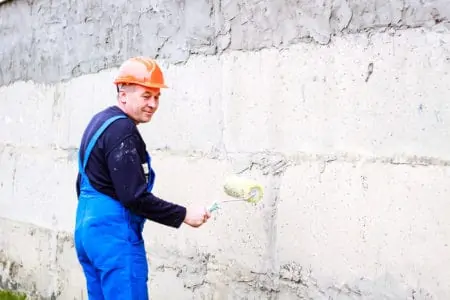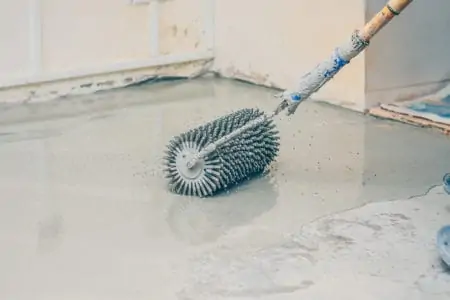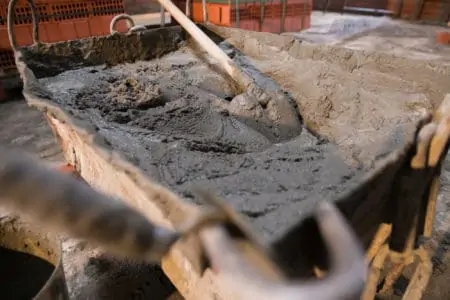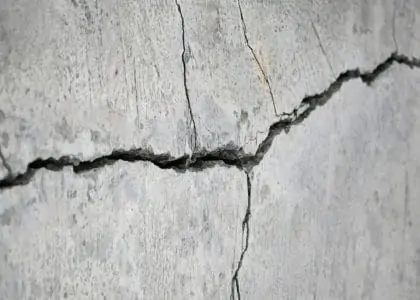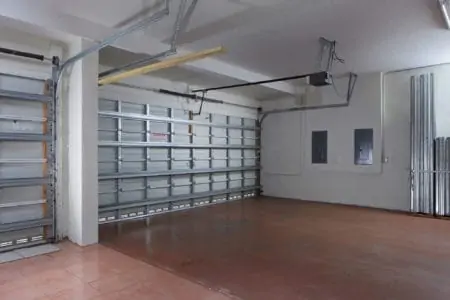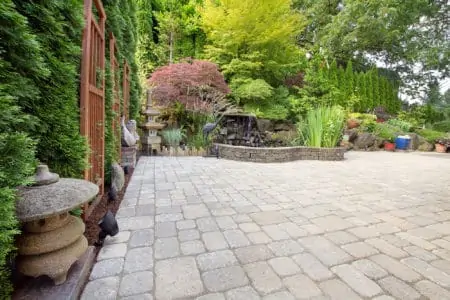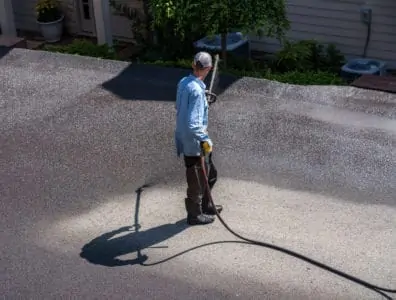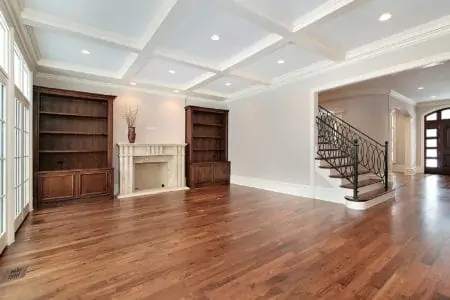Does your patio or driveway show signs of wear and tear? Are they cracking and flaking? The everyday rigors, weather, footfall, and other traffic can leave your concrete surfaces broken and chipped.
The best concrete sealers not only seal the concrete but also protect and enhance the texture of the surface. After much research, we have listed the 7 greatest concrete sealers money can buy.
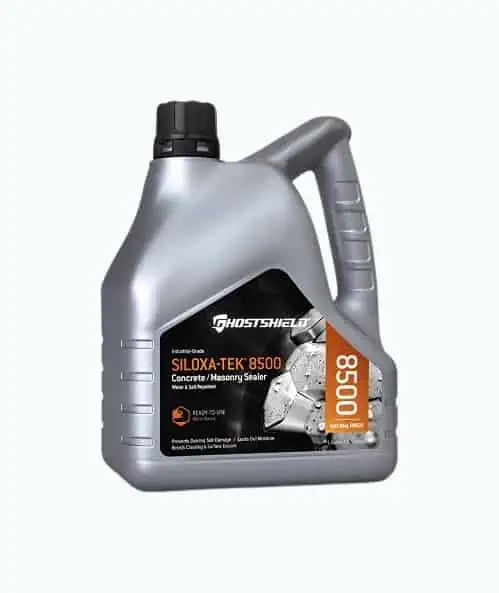
- Penetrates deep into the concrete and doesn’t leave a sheen
- Cover up to 250 square feet gallon per coating
- Water-based and low VOCs, so great for the environment
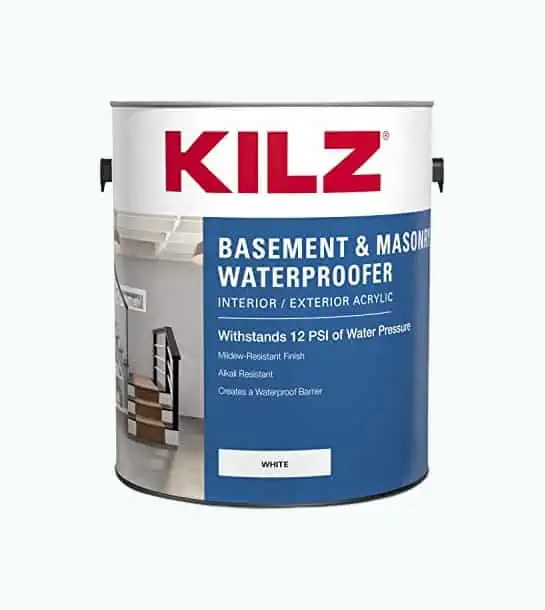
- Low VOCs and water-based, which is easy to clean up
- Water, mold, and mildew-resistant
- Can be used indoors and out
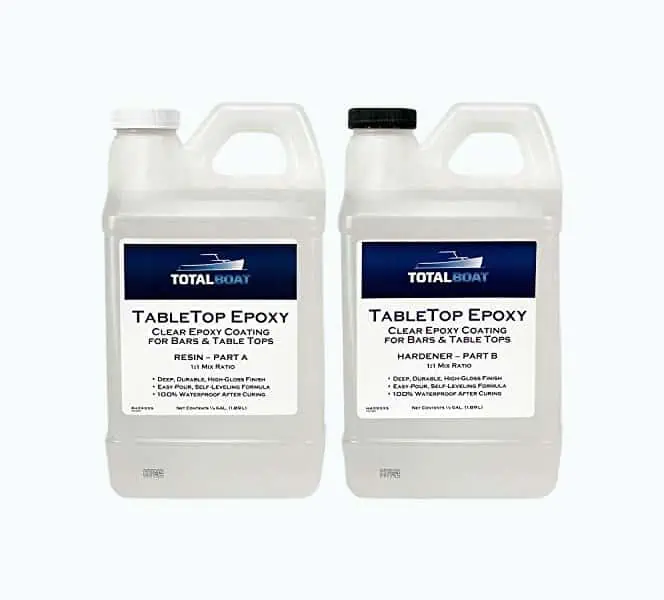
- No vocs and bpa-free
- Marine-grade epoxy resin is resistant to UV and rain
- Self-leveling, easy to mix, and easy to pour
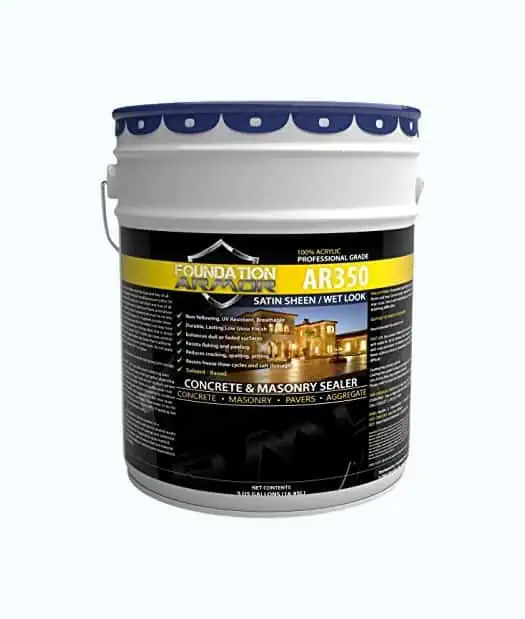
- Low-gloss and wet look
- UV resistant and low vocs, which is great for your health
- Breathable, non-yellowing, and self-priming
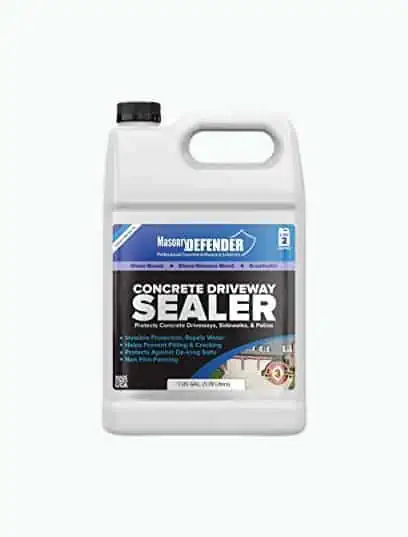
- Easy to apply with a garden paint sprayer
- 5-year guarantee between re-coats
- Penetrating sealer soaks into the concrete
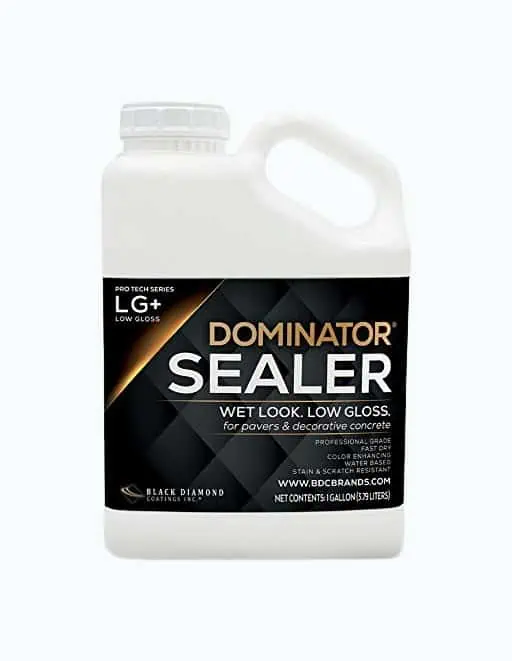
- UV, stain, color-restorer, and fade resistance
- 5-year warranty between re-coats
- Low VOCs and no odors, which is better for your health
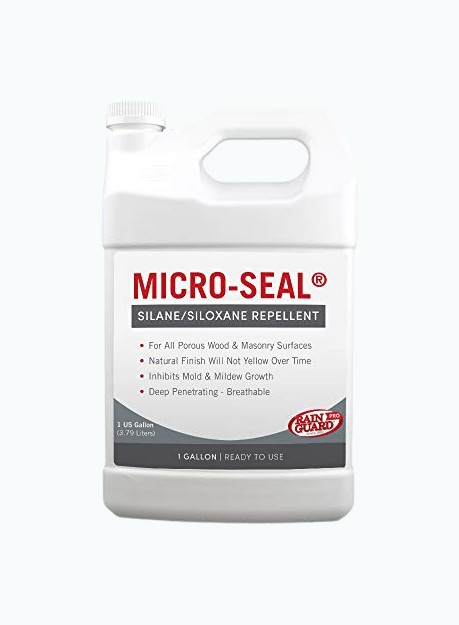
- Water-based, so good for the environment
- This penetrating formula soaks deep into the concrete
- Guaranteed for 10 years between re-coats
Review Methodology: At Sensible Digs, we provide a thorough review of the best concrete sealers based on comprehensive research, hands-on testing, and professional analysis. Our experienced team takes into account multiple factors such as the sealer’s performance, durability, ease of application, and drying time. We evaluate products from a user’s perspective and use quantitative measurements to rank and score each concrete sealer. Our assessments consider what sets each product apart from its competitors, identifying key decision-making factors such as cost, coverage, and waterproofing capabilities. Our reviews are backed by first-hand experience and factual evidence, ensuring you make the best choice for your concrete sealing needs.
The Best Concrete Sealers of 2024
Here are seven high-quality concrete sealers to consider.
Siloxa-Tek 8500 Ready-To-Use Penetrating Concrete Sealer
Best Penetrating Concrete Sealer
This is an industrial-grade water-based sealer, so you know it will protect your concrete surfaces from the weather. It resists de-icing, freezing, rainfall, thaw damage, pitting, and cracking.
It protects the concrete and the substrates from salt and chlorides, and it has excellent water beading qualities. This siloxane sealer is different from the others because it penetrates deep into the material, protecting it from within.
The key thing is there is no aesthetic change to the look and feel of the concrete. It doesn’t dry with a high sheen, plus it has low VOCs (volatile organic compounds), so it is good for your health and the environment.
You can use it on driveways, patios, pool decks, and basement floors, so it is a multi-use sealer, and it covers up to 250 square feet per gallon per coat. It also is guaranteed to never yellow or fade through UV damage, so it will stay looking great for years.
The only downside is this sealer is thin, so if you are working on an incline, it may run downhill. Plus, it takes some practice applying it because the second coat has to be put on when the first coat is still slightly wet.
Pros
- Penetrates deep into the concrete and doesn’t leave a sheen.
- Cover up to 250 square feet gallon per coating.
- Water-based and low VOCs, so great for the environment.
- Industrial-grade, so it won’t fade or yellow.
Cons
- Takes a little practice to apply.
- Thin viscosity, so it may run or streak.
Product Specs
| Quantity | 1-gallon |
| Type | Penetrating water-based |
| Application | Spray, paint, roller |
| Viscosity | Thin |
| Price | $$ |
Our Ratings
User Experience
KILZ Interior/Exterior Concrete Waterproofing Paint
Best Concrete Waterproofing Sealer
This concrete sealer uses nanotechnology to form a protective and waterproof barrier over your concrete and masonry surfaces. It can be used indoors and out, so it is versatile, and depending on the surface porosity, you should get between 75 to 125 square feet of coverage per 1-gallon can.
This water-based paint is water-resistant, mold and mildew-resistant, and cleans up easily with soap and water. It is low VOCs and better for the environment because it doesn’t need a mineral spirit to get it clean.
This paint dries to the touch in 1 hour and can be re-coated in 4 hours. And because it is waterproof paint, you can spray it, brush it on or use a roller.
The only negative is it only comes in white, so you are limited to choice, and if you don’t want to change the color of your concrete, you might be better off picking a clear sealer.
Pros
- Low VOCs and water-based, which is easy to clean up.
- Water, mold, and mildew-resistant.
- Can be used indoors and out.
- White paint brightens up your concrete.
Cons
- It changes the color of your concrete.
- Only comes in white.
Product Specs
| Quantity | 1-gallon |
| Type | Paint, water-based |
| Application | Spray, paint, roller |
| Viscosity | Thin |
| Price | $ |
Our Ratings
Personal Perspective
TotalBoat Epoxy Resin
Best Epoxy Concrete Sealer
The epoxy concrete sealer dries hard to form a super-protective coating that is almost impenetrable. It means the rain and UV rays of the sun will not fade or yellow this resin. It’s also marine-grade, so it deals with salt and chlorides better.
It is self-leveling, easy to pour and mix, with a 1:1 ratio, and it bonds to concrete, masonry, metal, wood, and ceramics, so it has a multitude of uses.
It dries crystal clear, preserving the concrete surface below, and it contains zero VOCs and is BPA-free. This means it’s great for the environment, your health and for easy cleanup with soap and water.
The downside is you get a much-reduced coverage with this epoxy because it is a 2-part process, with a 0.5-gallon hardener and epoxy. You only get 6 square feet per mixed 1-gallon quantity, which is a lot less than the sealers featured on this list.
It’s also expensive compared to other similar products. And if you are working on a large area, it could cost many times more than other sealers.
Pros
- No VOCs and BPA-free.
- Marine-grade epoxy resin is resistant to UV and rain.
- Self-leveling, easy to mix, and easy to pour.
- Resistant to UV and water.
Cons
- Limited coverage compared to other similar products.
- Expensive if you are working on a larger area.
Product Specs
| Quantity | 1-gallon |
| Type | Epoxy, water-based |
| Application | Paintbrush |
| Viscosity | Thick |
| Price | $$$ |
Our Ratings
Community Feedback
Armor AR350 Wet-Look Concrete Sealer
Best Wet-Look Concrete Sealer
This Armor concrete sealer dries with a wet look and a low-gloss finish. It is made from non-recycled resins, so it isn’t the greenest product to feature. It’s also solvent-based, so it will pollute the environment.
It is breathable, non-yellowing, and self-priming, so you apply it to unsealed concrete and paver surfaces, as well as surfaces previously sealed with a solvent-based product.
This sealer reduces instances of pitting, cracking, and spalling caused by surface abrasion. Once down, it can last up to 3 years outdoors and 5 to 7 years indoors.
The negatives are that this sealer will darken the surface of your concrete, and it is extremely harmful to the environment. However, it is UV resistant and has low VOCs.
Also, it is eye-wateringly expensive. It costs over $200 for a 5-gallon tub. If we look at the price per gallon, it is comparable with others, but to spend this much, you have to be sure you need 5 gallons.
Pros
- Low-gloss and wet look.
- UV resistant and low VOCs, which is great for your health.
- Breathable, non-yellowing, and self-priming.
- Lasts 3 years outside and 7 years indoors.
Cons
- It will darken the surface of your concrete.
- 5 gallons is expensive if you don’t need that much.
Product Specs
| Quantity | 5-gallon |
| Type | Acrylic, oil-based |
| Application | Paintbrush, roller |
| Viscosity | Thick |
| Price | $$$$$ |
Our Ratings
First-Hand Impression
MasonryDefender Penetrating Concrete Sealer
Best Water-Based Concrete Sealer
This water-based siloxane sealer is guaranteed never to color, stain, or darken your concrete surfaces. If you want to keep your concrete looking as you intended but still protected from the elements, this sealer is the one to get. It dries invisible.
Thanks to the siloxane rain guard, it binds with the minerals in the concrete to form long-lasting protection from water. You should get 5 years of protection between new coats, and because it’s a penetrating sealer, it creates a barrier within the concrete.
It’s easy to apply with a pump-action garden sprayer, and you should get between 90 to 150 square feet of coverage depending on the porosity of the concrete surface. It safeguards against pitting, freeze-thaw, staining, salts and chloride, and so much more.
The only downside is a sprayer is less accurate than a brush or roller, so be prepared for overspray.
Pros
- Easy to apply with a garden paint sprayer.
- 5-year guarantee between re-coats.
- Penetrating sealer soaks into the concrete.
- It stops pitting, salt damage, and freeze-thaw.
Cons
- Applied with a sprayer, which is much less accurate
Product Specs
| Quantity | 1-gallon |
| Type | Penetrating, water-based |
| Application | Sprayer |
| Viscosity | Thin |
| Price | $$ |
Our Ratings
User Experience
Dominator LG+ Low-Gloss Paver Seal
Best Stamped Concrete Sealer
If you want the best possible coverage for your stamped concrete, this Dominator offers up to 400 square feet of coverage, depending on the texture of your pavers or pattern.
Just like the MasonryDefender product, you get a 5-year warranty against the sealer failing, and it is solvent-free, with no odors and low VOCs, so it’s better for you and the environment. It also cleans up with soap and water.
You get UV protection, stain resistance, fade resistance, and it even restores sun-washed colors. It dries to the touch in 4 to 6 hours and cures in 24 hours, but wait for 48 hours if you are subjecting it to heavy footfall.
This Dominator is pretty costly for a 1-gallon container, so it might limit the size of your projects.
Pros
- UV, stain, color-restorer, and fade resistance.
- 5-year warranty between re-coats.
- Low VOCs and no odors, which is better for your health.
- Environmentally friendly water-based formula.
Cons
- If working on a large project, it could be expensive.
Product Specs
| Quantity | 1-gallon |
| Type | Water-based |
| Application | Sprayer |
| Viscosity | Thin |
| Price | $$$$ |
Our Ratings
Personal Perspective
Rain Guard CR-0356 MIcro-Seal Penetrating Sealer
Best Concrete Sealer for Driveway
This is another water-based concrete sealer, which is excellent news for the environment as it washes clean with soap and water. What caught our attention was the 10-year warranty you get with this product. That’s a lot of weatherproofing between re-coats.
This is a penetrating sealer, so your driveway will not change appearance when it is applied, and the formula soaks deep into the material to form a water-resistant layer. It also protects against stains such as oil, gas, and antifreeze, so when you are maintaining your vehicle, it won’t ruin the concrete driveway.
You get total protection against ice, freezing, chemicals, and wind-driven rain. It also protects against mold and mildew, and it will not alter the appearance of your driveway.
Again, this is a spray-applied formula, so it is thin and not great for driveways on a steep incline. You also get less accuracy with a sprayer.
Pros
- Water-based, so good for the environment.
- This penetrating formula soaks deep into the concrete.
- Guaranteed for 10 years between re-coats.
- Won’t discolor or stain the original color of your concrete.
Cons
- Applies with a sprayer, so accuracy is compromised.
- The thin formula is tricky to apply on inclined driveways.
Product Specs
| Quantity | 1-gallon |
| Type | Water-based |
| Application | Sprayer |
| Viscosity | Thin |
| Price | $$$ |
Our Ratings
Community Feedback
| Product | Best | Quantity | Type | Application | Viscosity | Price |
|---|---|---|---|---|---|---|
| Siloxa-Tek 8500 Ready-To-Use Penetrating Concrete Sealer | Best Penetrating | 1-gallon | Penetrating water-based | Spray, paint, roller | Thin | $$ |
| KILZ Interior/Exterior Concrete Waterproofing Paint | Best for Waterproofing | 1-gallon | Paint, water-based | Spray, paint, roller | Thin | $ |
| TotalBoat Epoxy Resin | Best Epoxy | 1-gallon | Epoxy, water-based | Paintbrush | Thick | $$$ |
| Armor AR350 Wet-Look Concrete Sealer | Best Wet-Look | 5-gallon | Acrylic, oil-based | Paintbrush, roller | Thick | $$$$$ |
| MasonryDefender Penetrating Concrete Sealer | Best Water-Based | 1-gallon | Penetrating, water-based | Sprayer | Thin | $$ |
| Dominator LG+ Low-Gloss Paver Seal | Best Stamped | 1-gallon | Water-based | Sprayer | Thin | $$$$ |
| Rain Guard CR-0356 MIcro-Seal Penetrating Sealer | Best for Driveways | 1-gallon | Water-based | Sprayer | Thin | $$$ |
Why Should I Seal Concrete?
Most concrete surfaces will outlive you by many years, but they still need a little TLC. Driveways crack under the strain of vehicles, patios weather and become brittle with the weather, and basement floors show signs of wear and tear.
The UV rays of the sun can damage almost anything, and that includes concrete. So, you need to find a way to protect it from the elements. And that’s where concrete sealer comes in. It hardens and forms a protective barrier that stops the rain from penetrating deep below the surface.
Rainwater has a corrosive effect over a very long period, and when the temperature drops, that rain freezes and expands, and that’s when the cracks start to appear. If you leave the concrete unchecked each winter, the cracking gets worse and starts to break it up.
Types of Concrete Sealer
There are 4 types of concrete sealer, but which one is the best?
Penetrating
Most penetrating sealers are made from siloxane, silicates, and silane, and they are a great alternative if you want to protect your concrete without changing its appearance. They are environmentally friendly, resistant to water, chemicals, and UV rays.
Acrylic
Acrylic sealers are made from acrylic compounds and solvents, although water-based versions are available. The great thing about acrylic sealers is you can get them in a variety of sheens, so you can enhance the appearance of your concrete.
It dries hard and protects the surface from weather damage, so they are excellent for use on sunny spots like patios and driveways.
Epoxy
Epoxy sealants are popular, but they are a more expensive option. They form a high-build protective film on the surface of the concrete. They dry harder and are more weather-resistant than acrylic sealers.
Epoxy sealers are non-porous, so they don’t allow any trapped moisture to escape, which means you might get mold and mildew problems if water penetrates, and that could lead to the concrete eroding and cracking from beneath the sealer.
Polyurethane
Polyurethane is a mixture of glycol and isocyanate to form a moisture and corrosion-resistant sealant. It is used in many things, from caulk to sealant, and it has excellent adhesive qualities.
They can be water or solvent-based, and they are an ideal option for indoor use when touching up cracks in concrete surfaces.
How To Choose the Best Concrete Sealer
What are the important factors you should focus on when choosing a concrete sealer? Let’s take a look at the basics.
